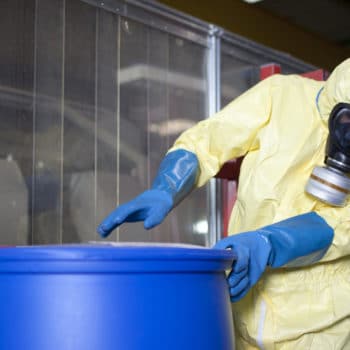Why We Love It
-
$76,040Potential Avg. Salary
-
19.7%Job Growth Rate
-
Growing DemandJob Outlook
-
Dependable Daily WorkloadCareer Attribute
Clinical psychologists are mental health experts that study and diagnose disorders that affect behaviors, thoughts, and emotions. They may work individually with patients in one-on-one, couples, or group counseling sessions, or they may work as researchers, conducting studies and creating theories.
Recommended Schools
What is a Clinical Psychologist?
The following job responsibilities are common for individuals in clinical psychologist roles:
- Diagnose patient mental states and disorders through a variety of methods of information collection, including discussion, observation, testing, and research
- Educate patients on thought and behavior modification techniques designed to overcome mental and behavioral issues
- Conduct counseling sessions with patients in one-on-one, couples, family, or group sessions
- Conduct research studies and administer various tests to better understand and diagnose disorders
- Publish research findings in scholarly journals or as books
A Day in the Life of a Clinical Psychologist
Clinical psychologists are experts in diagnosing and treating mental disorders. They consult with patients that are struggling with thought, emotion, or behavior disorders and use a variety of techniques to properly diagnose and treat afflictions. Often, they conduct counseling sessions where they can observe patient behaviors and thought patterns and ask questions. They also may administer personality, intelligence, and diagnostic tests in order to better understand patient thought patterns and behaviors.
After diagnosis, the clinical psychologist works with patients to overcome issues and behavioral problems. In most states, psychologists are unable to prescribe medication, so their approach is often to encourage patients to change their thought patterns as a means of overcoming issues. Often, continued counseling is recommended to monitor and guide patients, and during sessions, the psychologist and patient discuss what is bothering the patient and why.
Some clinical psychologists also conduct studies in order to better diagnose and treat disorders. Often, these studies include social experiments to observe how individuals react to different situations. Alternatively, they may study the effectiveness of different treatments on patients suffering from the same or similar disorders. Usually, a clinical psychologist’s research culminates in the writing of an article for a scholarly journal or magazine, or the publishing of a book on findings.
Typical Work Schedule for Clinical Psychologists
The majority of clinical psychologists work full-time during normal business hours. However, those that own their own practices may work evenings or weekends to accommodate patient schedules, and those that work in hospitals may work varying shifts outside of normal business hours.
Projected Job Growth for Clinical Psychologists
An increased awareness of the importance of mental health, especially for school-aged children—is expected to grow the demand for clinical psychologists significantly in the coming decade.
Clinical Psychologist Specializations
- Neuropsychologists study the effects of brain damage or injuries. The observe brain patterns and images of impaired patients, as well and thought patterns and actions, to better understand the overall workings of both the normal and impaired brain.
- Counseling psychologists work with patients in a therapeutic, discussion based setting either one-on-one, with a couple or family, or as a group.
- School psychologists work with elementary, middle, and high school students to correct behavior issues or help manage disorders like ADHD or learning disabilities.
- Forensic psychologists work for lawyers, prosecutors, and law enforcement agencies and help to profile criminals, or to diagnose criminals with psychological disorder to help explain actions.
Typical Employers
The largest number of clinical psychologists are employed to work for elementary, middle, and high schools. Other large groups of clinical psychologists are self-employed and operate their own private practices, or are employed by governments, other mental health institutions, or hospitals and other healthcare organizations.
Recommended Schools
How To Become a Clinical Psychologist
The first step in becoming a clinical psychologist is to earn a bachelor’s degree. While majoring in psychology is most common, other majors may be acceptable as long as students take coursework in introductory psychology and statistics. After earning a bachelor’s degree, aspiring psychologists need to them move into a master’s degree program. Common master’s degrees may be broad—such as a master’s in psychology, or more career-specific, such as master’s in forensic psychology.
With a master’s degree, aspiring psychologists may be able to find entry-level positions in the field. School psychologists are commonly hired with education specialist master’s degrees (Ed. S.), and many aspiring clinical psychologists can find work with a master’s degree assisting professional clinical psychologists. However, to become full clinical psychologists, a doctoral degree is required. A Ph.D. in psychology may be sufficient to work as a researcher, or you may pursue a Psy.D.—a clinical degree.
In addition to holding the appropriate degree, clinical psychologists also need to be licensed to work as psychologists in their state. While the requirements vary from state to state, most states require licensure which is acquired by earning a doctoral degree, participating in an internship or other supervised working role for one or more years, and passing a written examination. Some roles may also require job-specific certifications offered by the American Board of Professional Psychology.
Clinical Psychologist Salary Data
We’ve provided you the following to learn more about this career. The salary and growth data on this page comes from recently published Bureau of Labor Statistics data while the recommendations and editorial content are based on our research.
National Anual Salary
Low Range
$53,190Average
$76,040High Range
$116,960National Hourly Wage
Low Range
$26/hrAverage
$37/hrHigh Range
$56/hrHow do Clinical Psychologist salaries stack up to other jobs across the country? Based on the latest jobs data nationwide, Clinical Psychologist's can make an average annual salary of $76,040, or $37 per hour. On the lower end, they can make $53,190 or $26 per hour, perhaps when just starting out or based on the state you live in.
Salary Rankings And Facts
#163 Nationally for All Careers
Above Average Salary Nationally
Programs and Degrees
Here are the most common degrees for becoming a Clinical Psychologist. a is usually recommended and specifically a degree or coursework that prepares you for the particular field, see below.
Highest Education Among Clinical Psychologists
- 49.3% Doctorate
- 44.3% Masters
- 5.6% Bachelors
- 0.2% Associates
- 0.2% College
- 0.2% High School
- 0.2% Less than High School
Job Growth Projections and Forecast
2014 Total Jobs
155,3002024 Est. Jobs
185,900Job Growth Rate
19.7%Est. New Jobs
30,600How does Clinical Psychologist job growth stack up to other jobs across the country? By 2024, there will be a change of 30,600 jobs for a total of 185,900 people employed in the career nationwide. This is a 19.7% change in growth over the next ten years, giving the career a growth rate nationwide of Above Average.
Growth Rankings And Facts
#53 Nationally for All Careers
Above Avg. Growth Nationally
What Companies Employ The Most Clinical Psychologists
| Industry | Current Jobs | New Jobs Needed | % Increase |
|---|---|---|---|
| Self-employed workers | 47,500 | 16,100 | 16% |
| Elementary and secondary schools; local | 38,300 | 2,300 | 2% |
| Offices of mental health practitioners (except physicians) | 13,500 | 5,300 | 5% |














